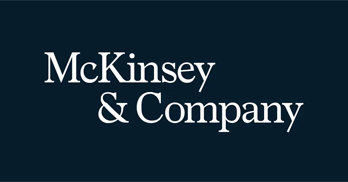Trending Topics in the World of Work
Our May issue of SHIFT stresses the importance of aligning employment with health drivers; using human-work models to boost employee performance; how “quiet quitting” has evolved into “resenteeism”; and how “shift shock” is sweeping social media.
Working to ThriveBetter aligning employment with modifiable drivers of health could unlock years of higher-quality life and create trillions of dollars of economic value, according to the McKinsey Institute of Health (MIH). Six modifiable drivers of health in the workplace – social interaction, mindsets and beliefs, productive activity, stress, economic security, and sleep – were identified from the growing body of research that connects the dots among drivers of health and the workplace. Researchers are building a greater understanding of how employers can address modifiable drivers to create change in favor of optimal employee health. |
 |
Using Human-centric Work Models to Boost Employee Experience and PerformanceAccording to a recent Gartner survey, employees operating in human-centric work models are three times more likely to both enjoy high intent to stay in their organisation and see low levels of fatigue. Fatigue, often associated with diminished employee engagement, can significantly impact organisational productivity and engagement. All this can lead to increased stress, burn out and poor talent retention. In light of this, organisations need to optimise their workplace, regardless of the model (remote, hybrid, on-site) with a compelling work culture value proposition that will enhance the overall employee experience and in return, drive productivity. They also must navigate competing priorities, ensuring that initiatives aimed at enhancing the employee processes that will drive tangible business results. |
 |
‘Quiet Quitting’ Has Evolved into ‘Resenteeism’Millennials are growing up – they are now managers in our workforce. It’s time to talk about Gen Z, the generation born between 1997 and 2012. When it comes to workplace engagement, Gen Z gets a bad rap. Members of the generation are accused of being too casual in professional settings and have been declared “the most challenging generation to work with.” So perhaps it’s no surprise that workplace dissatisfaction is such a hot topic of conversation. |
 |
‘Shift Shock’ Among the Top 10 Workplace Trends Sweeping Social MediaAccording to U.S. News, a pattern known as “shift shock” was one of the top 10 workplace trends of 2023, and it has risen in 2024. So, what is “shift shock?” It’s the realization that your new role is not what you expected it to be, and it’s sparking conversation online, mainly among younger job seekers. A recent Muse Shift Shock Survey found that 72% of the Muse audience say they’ve experienced “shift shock,” and 80% of the respondents said it’s acceptable to leave a new job before six months if it doesn’t live up to your expectations. |
 |
